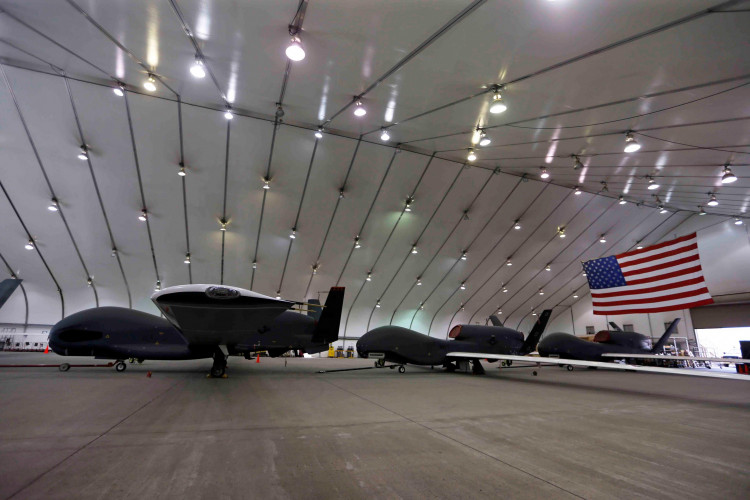One of the most exciting development markets in global aerospace over the next decade will be unmanned aerial vehicles, better known as drones or UAVs, a recent study showed.
In a 10-year industry forecast, the Teal Group expects that global drone demand will grow to $10.2 billion annually in 2029 from $7.3 billion this year, reaching nearly $99 billion over the next decade.
According to Teal Group, a Fairfax, Virginia-based aerospace and defense analyst and consulting firm, military spending on drone technology will add $61 billion over 10 years.
Increasing high-altitude, long-endurance systems, demand for armed UAVs and emerging unmanned combat systems will be key elements for growth in the field, the report states.
The forecast looked at 60 undisclosed U.S., European, Asia-Pacific, and Israeli companies reshaping the aerospace industry as drone technology proliferates.
The Puget Sound is home to several businesses, including Boeing and Amazon, that will be key players in this boom. Amazon designs produces and tests unmanned aerial vehicles for package delivery.
Boeing is working on a commercial air cargo delivery drone and this year has won an $805 million contract to build the United States Navy's first unmanned aircraft, the MQ-25 Aerial Refueling Drone.
In 2029, the U.S. will account for nearly 80 percent of the world's military spending on unmanned aerial vehicle research, development and testing, and nearly 50 percent of all military procurement, said Teal.
Suppliers in aerospace are already cashing in on drone production. This year, Sumner's Composite Solutions won a contract to produce fuselages and components for Savant, a drone built by Drone America Inc from Nevada.
Bingen startup Aerovel, on the other hand, is making a tail sitting UAV called the Flexrotor. The drone is capable of vertical take-off and can land like a helicopter.
Flexrotors, which can fly on one fuel tank for more than 30 hours, is of major interest to the U.S. Department of defense. Flexrotor can now do jobs for people on dangerous missions, such as searches by the Coast Guard for distressed ships in floods, fish spotting, anti-poaching, and drug smuggling.
DroneSeed, another start-up in Seattle, is using its heavy-lift drone swarms for reforestation projects launched after wildfires, saying that its drones are six times faster than human tree plants.
DroneSeed won rare approval from the Federal Aviation Administration last week to operate its seed-planting drones in forest and post-fire areas beyond visual lines of sight. It works with timber firms, Nature Conservancy, and various governments.






